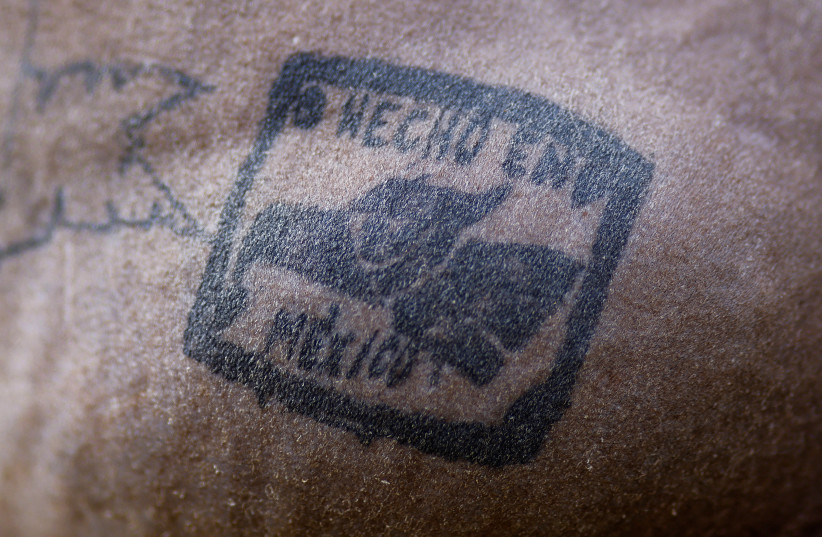Tattooed Mexican cat seeks new home after life behind bars

Mexican security authorities uncovered a tattooed Sphinx cat during a drug raid of a Juarez prison.
In Mexico, a hairless prison-yard cat is seeking a new forever home. While this four-legged friend has a tough exterior, animal control professionals in Mexico claim this cat is far from rough-around-the-edges.
Following a drug raid of the Cereso 3 prison in Juárez, the cat was discovered donning tattoos on its bare skin that mimicked phrases used by Sinaloa Cartel-affiliated street gangs.
The Sphynx cat, which doesn't yet have a name, is about 1 year old and has spent weeks in the Mexican city of Juarez under the care of animal rescue workers after police found him in a prison, where it suffered mistreatment at the hands of a criminal gang.
The cat's tattoos decorate both sides of its slender, grey body, and include the phrase "Made in Mexico."
Authorities say they are now looking for the right family to take the cat, which is not for sale, into their home.
"The cat is very sociable, and is in great shape, with no infections," Cesar Rene Diaz, ecology director for the city of Juarez, told Reuters.
A committee of city authorities will make the final decision about the adoption before presenting the cat to its new family in a ceremony on March 1.
Inmates and animals are a better match than anticipated
According to research released by the United States Department of Justice, a program that partnered inmates with animals to help with rehabilitation has trained nearly 100 inmates in the Assistant Laboratory Animal Technician course since 1983.
"Some inmates who excel in the course become eligible for work-release programs and are helped to find placements in a local laboratory, humane society, or animal hospital. A survey of participants indicates that they develop a better sense of self-worth and are involved in fewer prison violations than other inmates," according to the government-run study.
While animals have the potential to do good for those spending their time behind bars, there is a fine line between prisoner rehabilitation and animal welfare. Thankfully, Mexican animal control authorities understood the difference and placed the unnamed sphinx cat into protective custody until it can receive the care it truly needs.
Reuters contributed to this story.
Jerusalem Post Store
`; document.getElementById("linkPremium").innerHTML = cont; var divWithLink = document.getElementById("premium-link"); if (divWithLink !== null && divWithLink !== 'undefined') { divWithLink.style.border = "solid 1px #cb0f3e"; divWithLink.style.textAlign = "center"; divWithLink.style.marginBottom = "15px"; divWithLink.style.marginTop = "15px"; divWithLink.style.width = "100%"; divWithLink.style.backgroundColor = "#122952"; divWithLink.style.color = "#ffffff"; divWithLink.style.lineHeight = "1.5"; } } (function (v, i) { });

